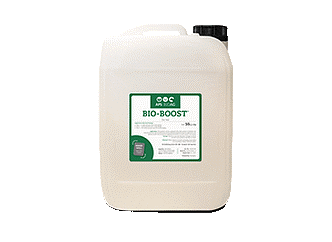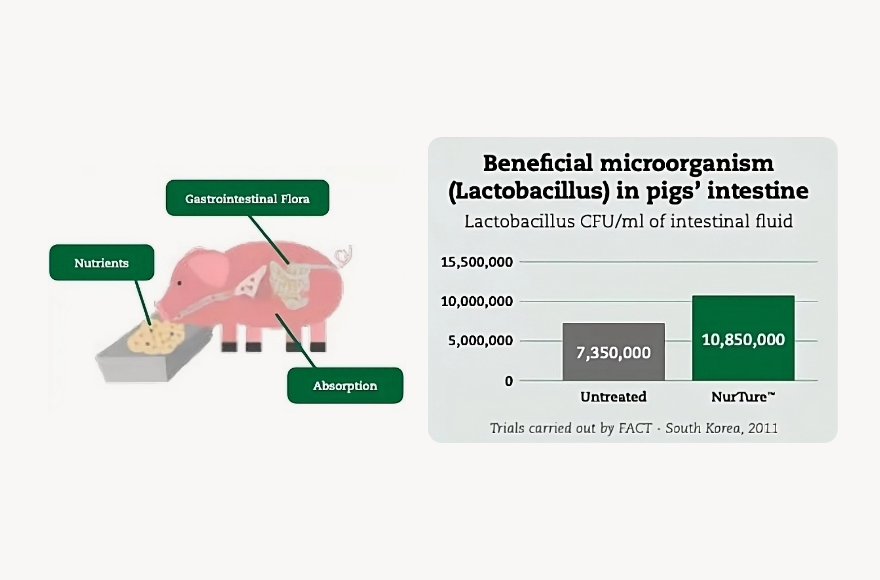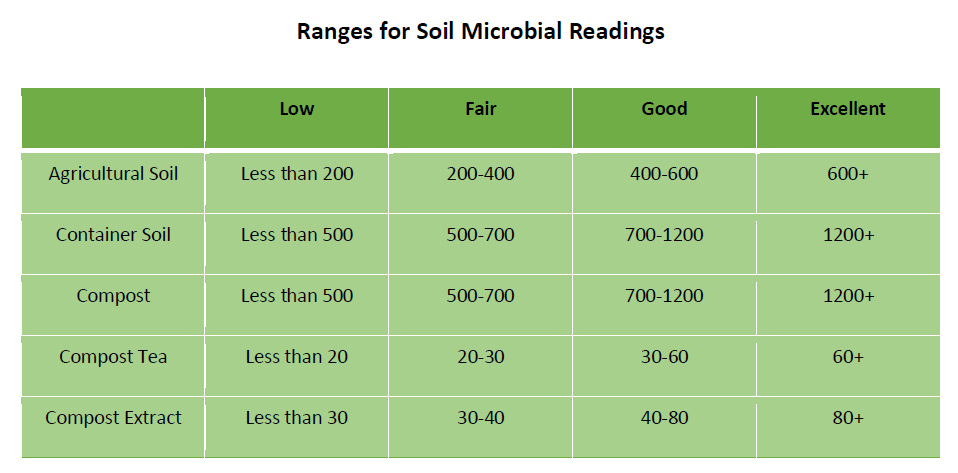Soil ecosystem as basis for agricultural production.
Knowing that agriculture is fundamental for the maintenance of life, and that the agricultural sector depends directly on the soil for the support and continuity of all forms of life, directs us towards a greater understanding of the soil.
Importance of biodiversity in ecosystems for agriculture

Biodiversity in ecosystems, especially in the soil ecosystem, is the basis of agricultural production. Furthermore, the rapid response of microbial processes and community structure to physical, chemical and biological changes in an ecosystem is at the heart of soil quality.
It is necessary, to understand that, although the macro and micro elements used in agriculture are essential for the development of plants and fundamental for obtaining the expected yields, the formulations to which these elements are available have a saline effect on the soil, resulting in decreased microbial activity and reduced interactions between the living fraction of the soil and cultivated plants.
High amounts of synthetic chemical molecules can cause nutritional, hormonal and enzymatic imbalances in plants. The reduction of rhizospheric symbioses results in limitations both in the absorption of water and nutrients and in the essential effect that microbial exudates exert on the development and growth of plants.
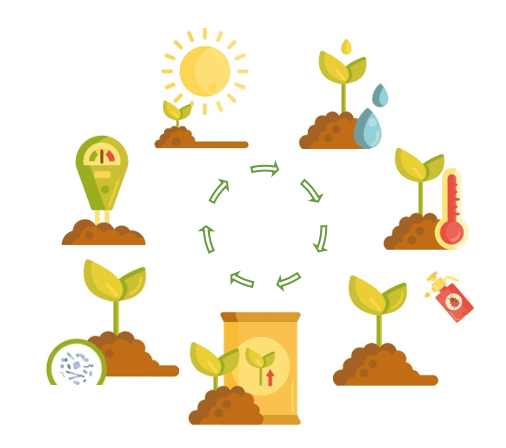
Consequences of disproportionate use of external inputs
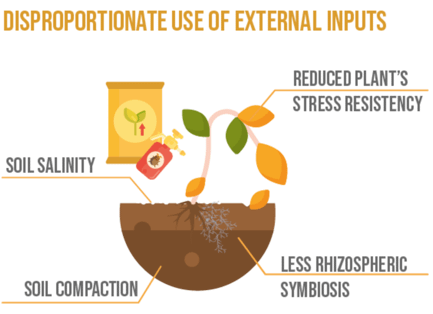
The most evident consequence of this microbial limitation is the decrease in the plants’ tolerance to the presence of pests and diseases in the environment. Plant growth-promoting bacteria (PGRP), nitrogen-fixing bacteria, nutrient solubilizing microorganisms, mycorrhizal fungi and biocontrol agents are an alternative for modern, regenerative agriculture. These microorganisms can allow a significant reduction in the use of agrochemicals and mineral fertilizers in agricultural systems through their numerous mechanisms of direct or indirect action.
Biological help for soil and plants
Biological agents can ensure protection from pest attacks and provide fertilization of crops. These biological agents are represented by beneficial organisms and microorganisms involved in the cycling, fixation and solubilization of nutrients, as well as in plant protection.

Bioactive systems to promote crop yield
Ecosystem biodynamic studies demonstrate that it is possible to practice agriculture with a focus on high yields, reducing the insertion of external inputs while focusing on biological interactions in the soil ecosystem, which are the basis of biological fertility.
By definition, bioactive systems refer to systems where biological interactions provide satisfactory results in terms of crop productivity. Conceptually, biostimulation means to promote actions that provide conditions for population increase, for the diversity and harmonic activity of the organisms that live in these systems, so that they can fully develop their activities harmoniously.
Plant stimulation results from the benefits provided by microbial symbiosis. The synthesis and concentration of phytohormones, induction of resistance mechanisms in plants, bioavailability of nutrients through the action of solubilizers and optimization of water use, all provide productivity gains, reduced production costs and, consequently, greater profitability for the producer.
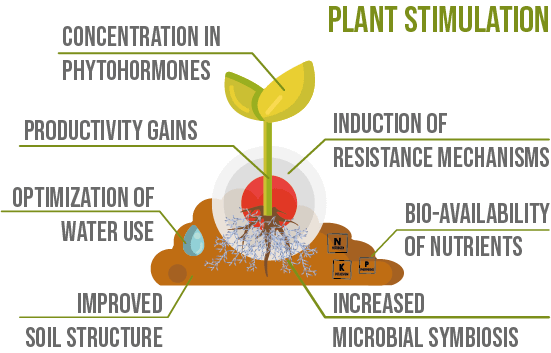
Biological health to increase yield
The biological health of soils has become another link in the chain to leverage yields. Not coincidentally, the current records of grain productivity observed in many countries are associated with new management practises where the replacement of nutrients in the soil happens in a new way, using organomineral sources, animal waste and/or plant residues. Likewise, these management practises adopt crop rotations, using specific cover crops for climate zoning and with proven actions in terms of soil decompaction, pathogen pressure reduction using synergy between cover crops and grain crops.
Partial replacement of the use of fertilizers and pesticides
It is known that the possibility of partial replacement of the use of fertilizers and pesticides in large crops is real and efficient. Numerous research studies have demonstrated the efficiency of using correct management and biotechnological tools, which can replace, without loss of productivity and without the incorporation of environmental liabilities, technological packages that are unsustainable from an economic and environmental point of view.
Technologies based on foliar fertilization, application of enzymes and organic compounds, use of biological agents and biological stimulation technologies are presented as efficient management tools to stimulate plant-microorganism interactions and increase the productivity of cultures.
There is no doubt that biological healthy soils can be achieved. More than that, the search for maintaining the biological health of soils represents an essential path as it consists of a solid and efficient management tool that encourages plant development and regenerative agriculture.
How to reduce mineral fertilizer without yield loss
Bio-Boost™ is the foundation product for our soil health program and we advocate it’s use in all farming systems.
Applied directly to the soil, it is a cost-effective means to stimulate indigenous soil biology and enhance the activity of all beneficial micro-organisms in the soil.
This stimulation enhances the growth of crucial mycorrhizal fungi, which supports humus formation and activates the natural supply of plants with nutrients from the soil. This has a long-lasting impact on maintaining soil structure, fertility and soil health.
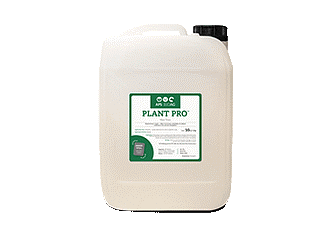
Plant Pro™ is a unique plant tonic. In addition to healthy soil and a sufficient supply with nutrients, an intact plant immune system is an important prerequisite for plant growth and yields.
Plant Pro™ has a stimulating effect on the plants’ immune system, which improves resistance to stress and strengthens the plant’s natural defences. By working with the natural biological processes, Plant Pro™ supports more vibrant plant development.
It increases root development, increases mycorrhizal fungi and promotes greater chlorophyll and photosynthesis. The resultant healthier and stronger plants are better protected against adverse growing conditions – insects, disease, drought, etc. thereby supporting an increase in crop yield and quality.

